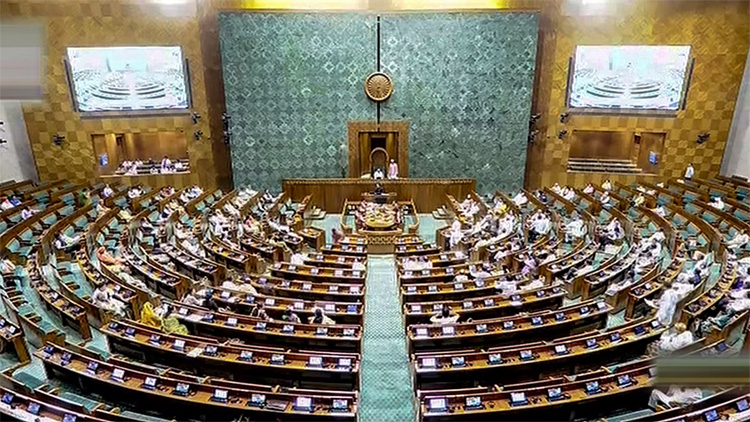Lok Sabha Passes Women’s Reservation Bill With 454-2 Majority
The Women’s Reservation Bill ‘Nari Shakti Vandan Adhiniyam’ has been passed by the Lok Sabha with a majority votes. After the division of the votes, the bill received 454 votes in its favour and 2 against it.
The bill required two third number to get passed in the Lok Sabha. The 128th Constitutional Amendment Bill was passed after voting.Several members namely Asaduddin Owaisi, Hibi Eden, N.K. Premachandran, Sougata Ray, A.M. Ariff and E.T Mohammed Bashir had moved amendments but did not pursue them.
Earlier, speaking on the bill, Union Home Minister Amit Shah said that the bill will provide reservation for women across the present three categories – General, SCs, STs – under which MPs are elected at present. After the bill was passed, the lower house voted on several amendments proposed by different MPs. Shah said the bill will be implemented soon after the census and delimitation after the elections. “Census and delimitation exercises will be conducted soon after the elections, and women will have a greater voice in the Parliament,” he added.
Notably, Day 3 of the Parliament special session witnessed a debate on the women’s reservation Bill in the Lok Sabha, while the Rajya Sabha discussed India’s space journey focusing on Chandrayaan-3’s successful soft landing on the moon. The Women’s Reservation Bill that seeks to provide a 33 per cent quota for women in Lok Sabha and state assemblies was introduced in the Lok Sabha yesterday in the ongoing special session of Parliament and was taken up for discussion today. The Union Cabinet on Monday approved the Women Reservation Bill.
The opposition parties including the Congress demanded immediate implementation of the bill. They also demanded OBC reservation in the bill.
On Tuesday, Union Law Minister Arjun Ram Meghwal introduced the bill in the first sitting of Lok Sabha in the new Parliament building. In 2008, the Manmohan Singh-led UPA government tabled the Bill in the Rajya Sabha, and it was passed in 2010. However, the Bill was never taken up for consideration in the Lok Sabha.

